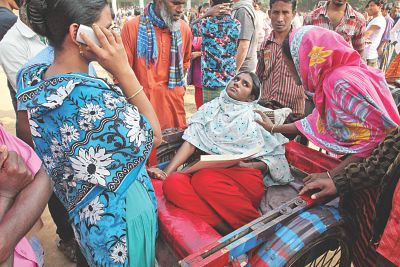
On Sunday, November 25, 2012, Bangladesh suffered its worst-ever factory fire, at the Tazreen Fashions factory. At last count, 123 workers died. By all accounts, the workers were all or almost all women. Nothing here was new. Bangladesh has 4500 garment factories. The garment industry in Bangladesh employs more than 3 million people. Most of them are women. Many of them have died in `industrial accidents’.
There was no accident.
And now, less than two weeks later, the `discoveries’ begin. Today’s breaking news is the factory had no safety certificate. No one thought it did. Exit doors were locked. We knew that. Managers wouldn’t let workers leave until the flames were obvious, until it was too late. We `learned’ this week that Wal Mart actively blocked, or nixed, safety moves in Bangladesh, including in Tazreen Fashions factory. Are you surprised? Neither am I. The news is not that Wal Mart stopped a move towards worker safety, but rather than now the documents proving it have been made public as have the Wal Mart receipts left on Tazreen’s burnt floors. All of this has undermined Wal Mart’s account and credibility. Who believed Wal Mart in the first place? Who believes Wal Mart now?
Who believes the fashion industry when it claims shock and dismay? Who believes The New York Times or any other news outlet when they only now `discover’ a “gap in safety for local brands”?
Investigative reporting is important, as is research. So is accountability, including accountability in tone and diction. There was no accident, there was no gap, there was no absence, and there is no surprise. Call the event by its proper name: massacre. “An indiscriminate and brutal slaughter of people”, specifically of women. And the factory was no factory. It was a slaughterhouse. It always was, and we cannot claim to be surprised when the flames burst and the women workers’ bodies explode … again.
(Photo Credit: TheDailyStar.net)

